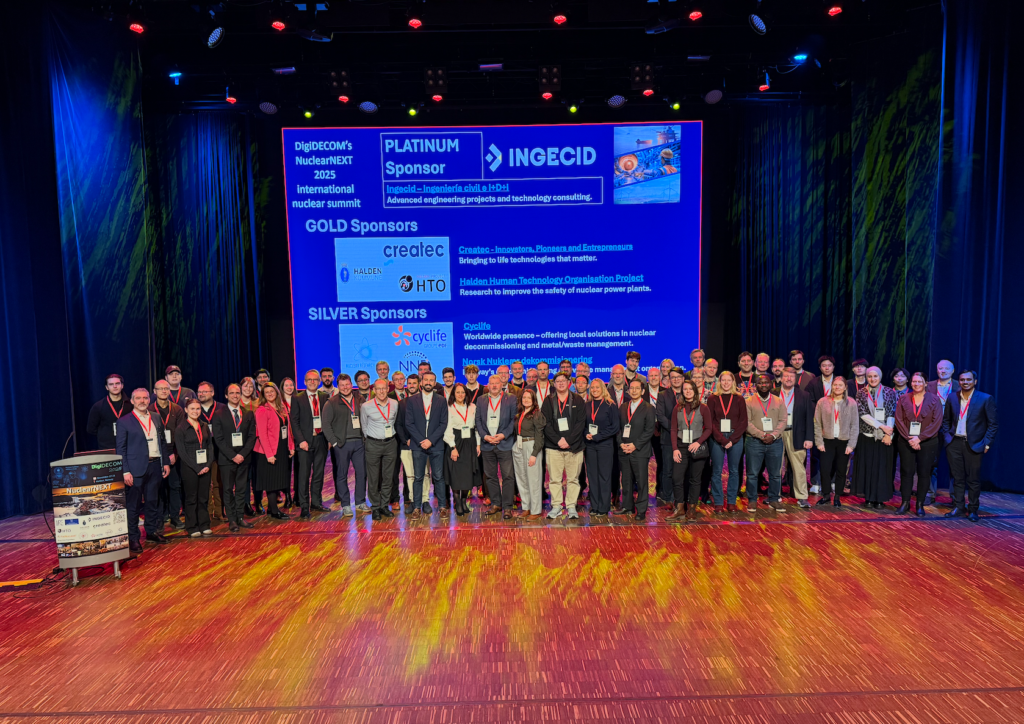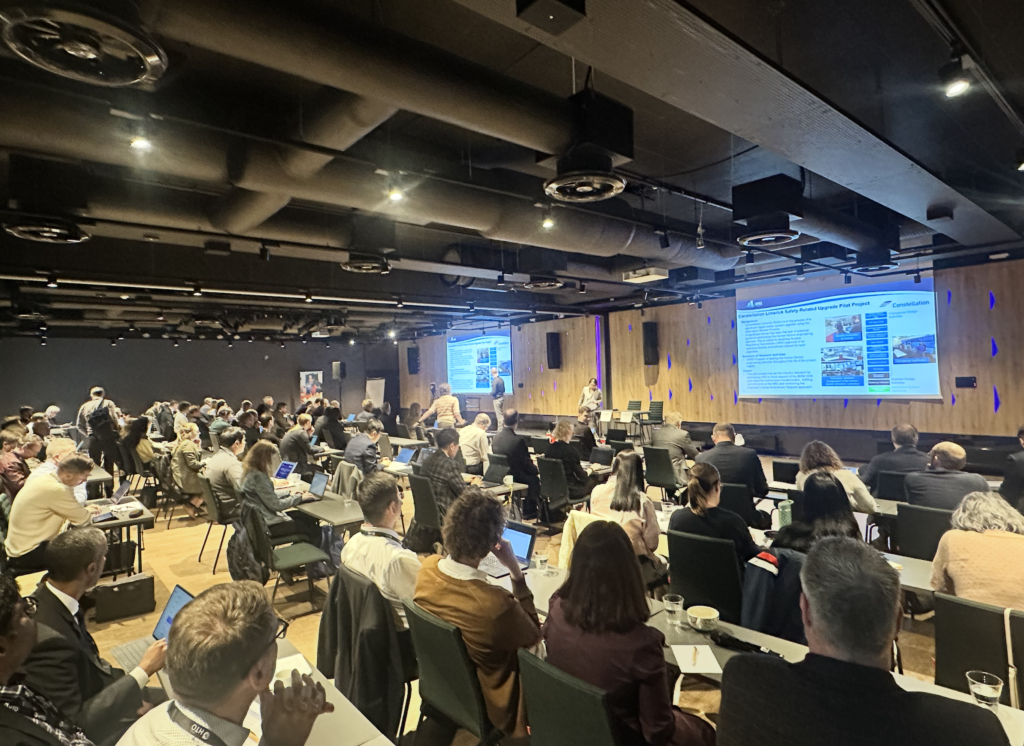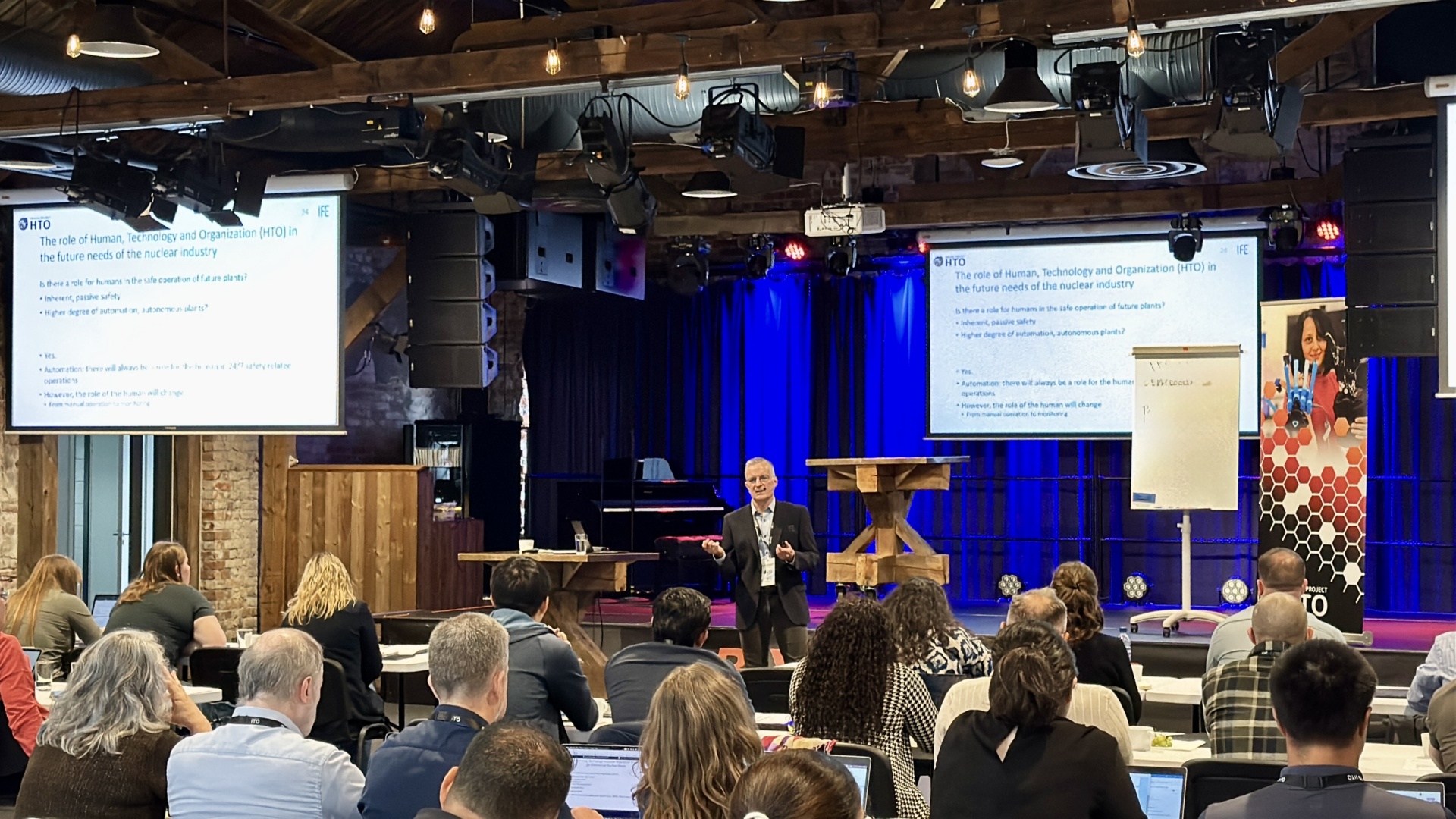From September 1st to 4th, 2025, the HTO Summer School was held in Halden, Norway. Here, both young and well-established researchers came together to share knowledge, engage in interdisciplinary collaboration, and build networks. This was the third time IFE hosted the HTO Summer School in Halden. IFE has also organized summer schools for fuel and materials research for many years.
This year’s summer school focused on how new technologies can be implemented in the nuclear power industry in a safe and efficient manner. Through a varied program of lectures, discussions, and practical exercises, participants gained insight into how technological solutions can support both safe operational performance and strategic development in the sector.
A central theme was the interaction between humans, technology, and organization. Participants learned about function allocation and control room design that ensures both safety and user-friendliness. Another key topic was safety and cybersecurity, which are becoming increasingly important as the nuclear industry undergoes digitalization.
Participants also explored how artificial intelligence and digital twins can be used to simulate complex systems, improve decision-making processes, and optimize performance. Through examples and hands-on exercises, they gained insight into how these technologies are already being used and what opportunities lie ahead. They also received guided tours and exciting demonstrations in HAMMLAB, the VR Lab, the Cyber Security Lab, and HADRON – all of which play a central role in our empirical studies.
International collaboration of significance
The Summer School in Halden is not only a venue for knowledge-sharing; it is also an important meeting point for international collaboration. This year, 71 participants from 10 countries and professional communities shared perspectives on how technology can be developed and implemented in the nuclear sector. This provides valuable opportunities for knowledge exchange and interdisciplinary dialogue.
IFE plays a central role in connecting research, industry, and authorities, and the summer school is a concrete example of how the institute contributes to strengthening competence and building networks across disciplines, experience levels, and national borders. The collaboration with the OECD Nuclear Energy Agency and the Norwegian Nuclear Research Centre underscores the academic weight and international relevance of the event.
“It was a pleasure to lead the Summer School in Halden this week. We had many great discussions about how new technologies can be applied in the nuclear power industry, and it was inspiring to meet so many engaged and talented participants and lecturers.”
These are the words of a happy Stine Strand, Research Director at the Nuclear Division at IFE.
The invited speakers at this year’s summer school were a combination of IFE researchers and prominent HTO members, with representation from the OECD Nuclear Energy Agency, Canada, the United Kingdom, and the United States.

“I’m very pleased with the speakers. The presentations were of high academic quality, engaging, educational, and highly relevant – I’m very proud of our strong research communities in Halden and especially of the HTO Project,” says Stine with a big smile.
Related news
-

21. November 2025
NuclearNEXT 2025 – Halden brings together world-leading experts in nuclear power and innovation
This week, Halden is a global hub for nuclear innovation as DigiDECOM NuclearNEXT 2025…
-

9. May 2025
Experts in Nuclear Safety Gathered in Norway
This week, the Institute for Energy Technology (IFE), on behalf of the OECD Nuclear Energy…

